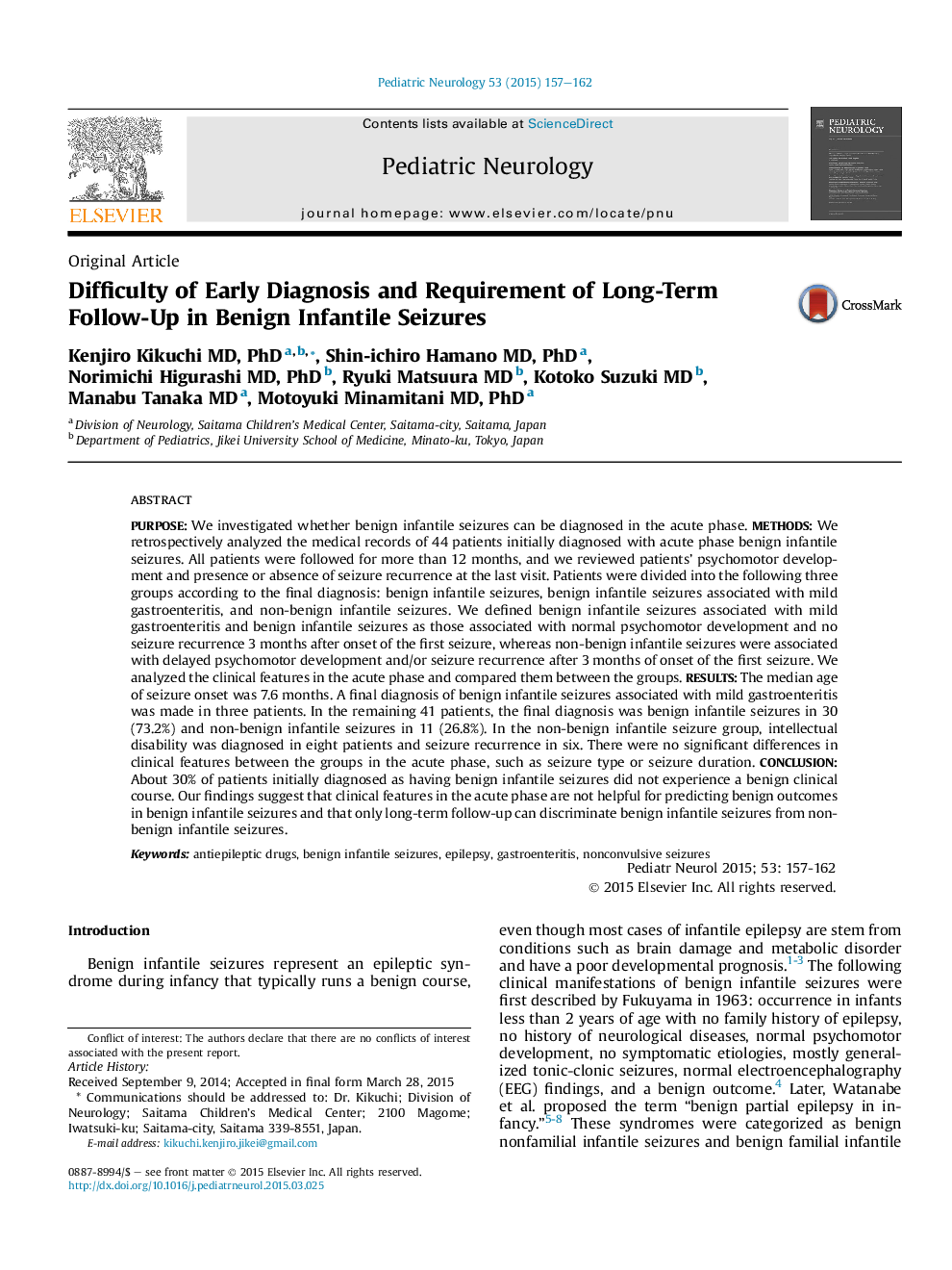| Article ID | Journal | Published Year | Pages | File Type |
|---|---|---|---|---|
| 3084440 | Pediatric Neurology | 2015 | 6 Pages |
PurposeWe investigated whether benign infantile seizures can be diagnosed in the acute phase.MethodsWe retrospectively analyzed the medical records of 44 patients initially diagnosed with acute phase benign infantile seizures. All patients were followed for more than 12 months, and we reviewed patients' psychomotor development and presence or absence of seizure recurrence at the last visit. Patients were divided into the following three groups according to the final diagnosis: benign infantile seizures, benign infantile seizures associated with mild gastroenteritis, and non-benign infantile seizures. We defined benign infantile seizures associated with mild gastroenteritis and benign infantile seizures as those associated with normal psychomotor development and no seizure recurrence 3 months after onset of the first seizure, whereas non-benign infantile seizures were associated with delayed psychomotor development and/or seizure recurrence after 3 months of onset of the first seizure. We analyzed the clinical features in the acute phase and compared them between the groups.ResultsThe median age of seizure onset was 7.6 months. A final diagnosis of benign infantile seizures associated with mild gastroenteritis was made in three patients. In the remaining 41 patients, the final diagnosis was benign infantile seizures in 30 (73.2%) and non-benign infantile seizures in 11 (26.8%). In the non-benign infantile seizure group, intellectual disability was diagnosed in eight patients and seizure recurrence in six. There were no significant differences in clinical features between the groups in the acute phase, such as seizure type or seizure duration.ConclusionAbout 30% of patients initially diagnosed as having benign infantile seizures did not experience a benign clinical course. Our findings suggest that clinical features in the acute phase are not helpful for predicting benign outcomes in benign infantile seizures and that only long-term follow-up can discriminate benign infantile seizures from non-benign infantile seizures.
